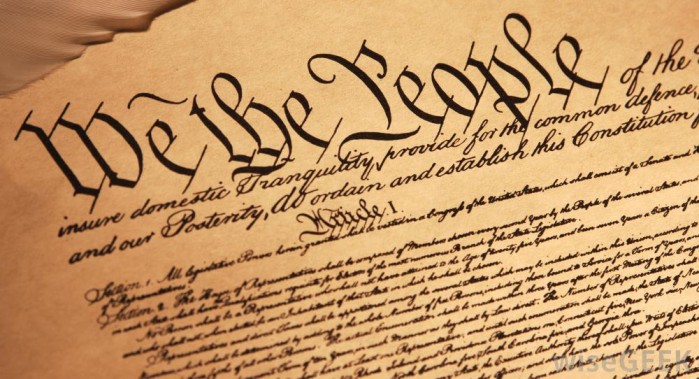
Editorial by Dr. John Warren – Publisher
Sometimes we forget that freedom of speech as guaranteed under the First Amendment of the U.S. Constitution does not carry with it the subjective right for local law enforcement to determine what is acceptable. One only need look back in history when in 1925 it was estimated by the New York Times that 50,000 to 60,000 white-robed men and women, of the Ku Klux Klan marched down Constitution Avenue in Washington, D.C. Everyone knew what they stood for, yet they marched. In another instance that went before the U.S. Supreme Court, the Klan sued to use a public elementary school for meetings. The Court ruled that freedom of speech did include such use. The Court has held over the years, using the Bill of Rights (first ten amendments to the U.S. Constitution) as the guiding principle, that freedom of expression includes any manner that does not infringe on the right of others to be left alone.
The burning of the American Flag was considered by many a right of protest expression under the First Amendment. The outraged by the American people over this interpretation lead to the passage by Congress of the Flag Protection Act in 1989, making it a crime “to knowingly mutilate, deface physically defile or burn the flag.” 1989 was the same year that the U.S. Supreme Court ruled in U.S. vs. Johnson 491 U.S. 397 that flag burning was considered symbolic protected speech, even though offensive to many. The U.S. vs Eichman case which followed a year later held in a 5 to 4 decision that Flag burning falls within the same class of actions as “virulent ethnic and religious epithets, vulgar repudiations of the draft and scurrilous caricatures which are deeply offensive to the average American. The Government may not infringe on the right to express an idea just because society has concluded that said idea is offensive. Fast forward to San Diego California and the 182.5 cases many of which have been dismissed under the granting of 995 Motions because they lacked “a defendant, a crime and specific benefit”.
While the photographs of Leron Johnson may be offensive and express his dislike for gangs outside of where he lives, the holding of him for 9 months without charges outside of 182.5 could be considered “Cruel and Unusual Punishment” under the Eighth Amendment of the U.S. Constitution. The high bail designed to hold him when there is no record or evidence that he is a flight risk, all amount to treating him as if he had already been convicted when there is no crime associated with him, at least on the record. The effort to force a “Plea Bargain” as an incentive for release further tarnishes the law.
Regardless of his photos on face book, his letter which appears in this paper and the reminder of what Due Process is supposed to mean as expressed in this editorial are compelling reasons to release Leron Johnson now.


